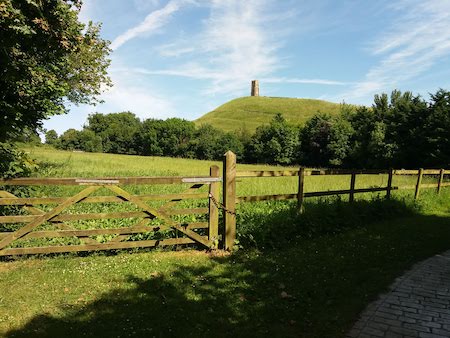
I am standing at the top of Glastonbury Tor when my phone buzzes: my sister’s email is not working and can I fix it.
I have my laptop with me. My Airbnb, while comfortable, has no locks on the door, so it was better to bring it with me. Since I’ve got my laptop, I can work out what’s wrong with the email from here, using my phone as a portable hotspot. And so, at the top of the holy hill, I go online and check things. Once a test email goes through, I can put the laptop away and get back to being a tourist. It’s late in the day after the solstice and the hilltop is full of people celebrating, playing and meditating.
The Internet has grown to encompass the world. We used to ‘go online’; now online is all around us. Even on the top of Glastonbury Tor I can be as connected as I am at my house.
In his book, New Dark Age: Technology and the End of the Future, James Bridle quotes mathematician Harry Reid’s description of working with the ENIAC, one of the first computers. This was a machine that took up the whole of a large room, and Reid says: “The ENIAC… was a very personal computer. Now we think of a personal computer as one you carry around with you. The ENIAC was actually one that you kind of lived inside”.
As Bridle goes on to point out, we all live inside a computer now, “a vast machinery of computation that encircles the entirety of the globe and extends into outer space on a network of satellites [while] it has rendered itself almost invisible to us”.
The supply chains, our phones, the planes in the skies, are all part of a massive network. Satellites send signals that tell us where we are anywhere in the world. We can no longer opt out. Everywhere I go, the Internet is there in some form. I don’t usually have my laptop in my bag, but my phone is always there.
The problem with this is that all places start to look the same. They all look a little bit like the UI on my Android phone.
This is an excerpt from a work in progress, A Hiker’s Guide to Brexit. It comes at the start of a chapter about Glastonbury, and how Britpop caused Brexit.